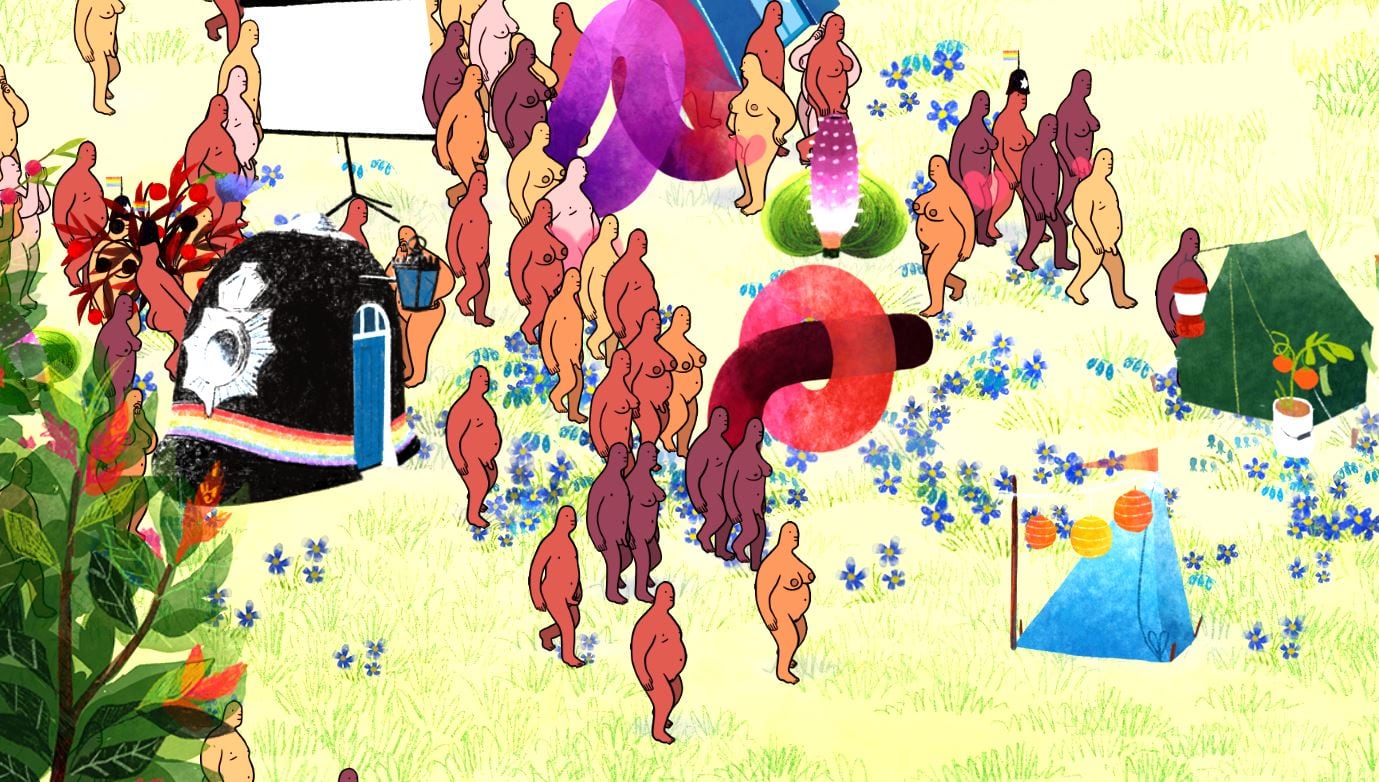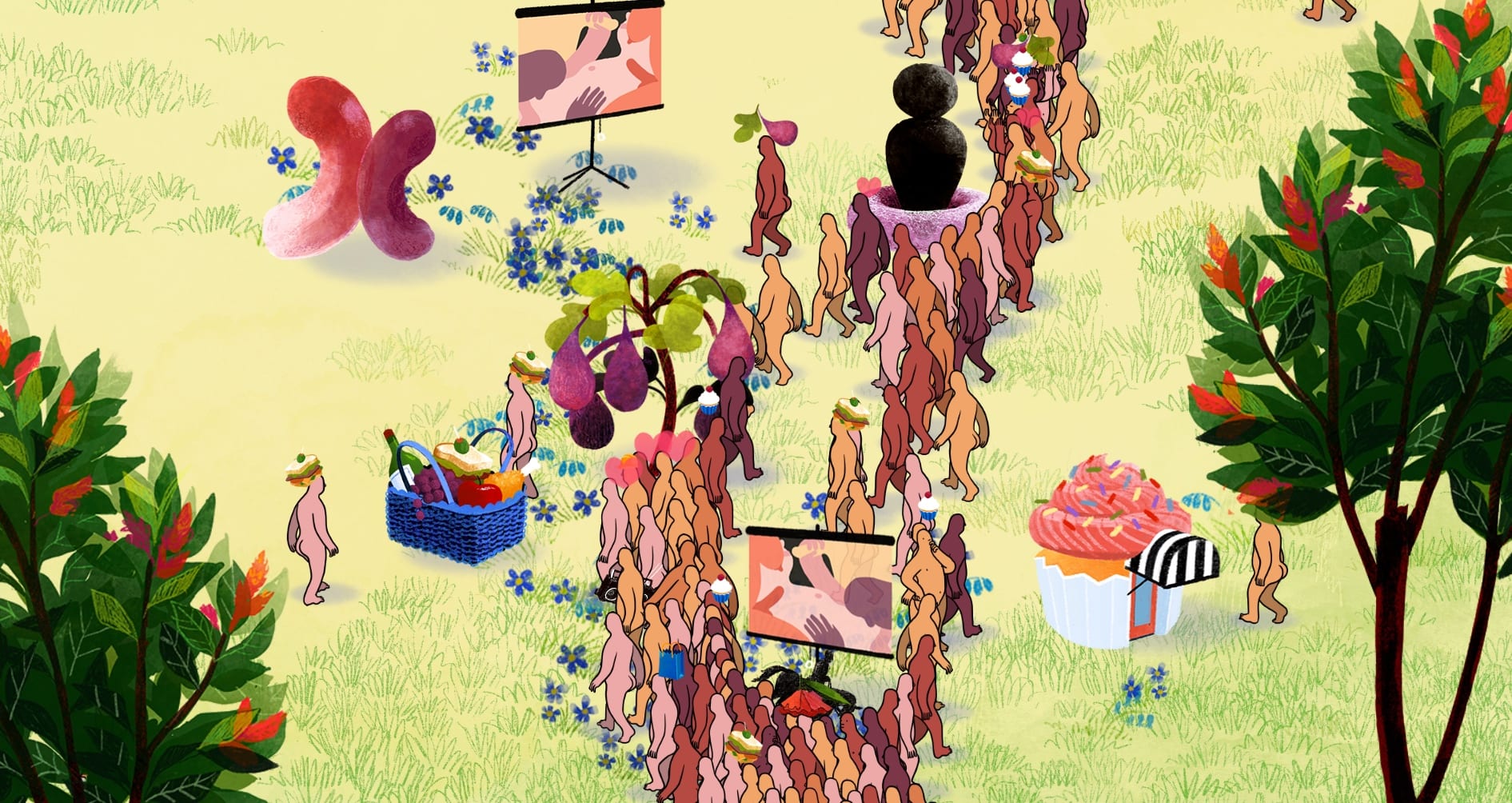
Queer garden simulator We Dwell in Possibility looks at architecture and sex
Robert Yang has always come up with innovative, thrilling new games that embrace history and queer culture, and We Dwell in Possibility is no exception to that.
As originally reported by Pink News, We Dwell in Possibility is a garden simulator with a queer twist. Yang has teamed up with cartoonist and illustrator Eleanor Davis, as well as music producer, aya for this project. Together, they’ve made a game that explores queer sex, bodies and architecture by subverting what we know about crowd simulations. Unlike the massive, heteronormative buildings that are used for living space and by corporations, We Dwell in Possibility asks players to create a landscape. And yes, that landscape does include a lot of phallic objects.
The game is a commission for the Manchester International Festival‘s Virtual Factory program, and as always Yang is keen to embrace the sexual, political nature of his work – just this time with a different aesthetic from the blocky, hunks of men that players saw in games like The Tearoom.

The world of this game is populated by naked, cartoon people – whom Yang calls Peeps – that plant a variety of seedlings. These seedlings then grow into trees that bear testicles as fruit. One of my personal favourite things to see while playing the game is watching a Peep go up to the tree and a love heart appear over their crotch, vibrating intensely. Like, good for you my testicle-loving, Peep!
It isn’t just trees either, you can get two-penis shaped sculptures rubbing together, a cacti ball-sack, a police helmet with a rainbow road lashed around the front and back… As Yang says in his notes and inspiration page “there are dozens of different possible plantings, which can make peeps happy, angry, horny, or even Tories.”
Of course, you don’t have to settle with structures or objects that make your garden feel less like your heaven. You can simply remove it by dragging it off to the side, and it’ll no longer exist. What We Dwell in Possibility isn’t is a game that has a right or wrong direction – it’s heaven and hell, all wrapped into one and it rests entirely on your shoulders if you let it, because you can also simply just watch the garden grow with no interaction from you whatsoever. We really are dwelling in all of the possibilities, huh?
Yang is all too aware of these possibilities and decisions too. He states “as the player, you must indirectly negotiate all these decisions with the Peeps, who bring their own politics and desires into the garden too. For example, there are police in this game. They wear cute little rainbow flags. Should police exist in this garden?” He continues, “liberal players might try to “balance” a police presence with “limited gayness”, queer players might prune all the police entirely, and Tory players might engineer a cringe garden consisting solely of police and high street retail, etc. In video games, we call this a sandbox — a simulation that is less about “winning”, and more about playing with systems that may or may not reflect your values.”
If you’re interested in playing We Dwell in Possibility for yourself, head on over to Virtual Factory and give it a go. It’s certainly a game that deserves your time.




